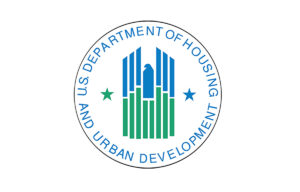Introduction to FHA Mortgages
You know you need a mortgage and so you navigate a maze of mortgage options. Among these is the FHA loan. “What is a FHA loan?” you ask? For starters, it stands out as a potential solution for homebuyers in Florida seeking flexibility.
Whether you’re a first-time homebuyer or simply exploring your loan options, understanding what this loan type entails is crucial. This guide aims to teach the basics of FHA loans. You will be able to understand differences from conventional mortgages. After you read this you will know why they might suit your needs.
What is a FHA Loan?
An FHA loan is a mortgage insured by the Federal Housing Administration (FHA). FHA is arm of the U.S. Department of Housing and Urban Development (HUD). This government-backed program aims to facilitate home ownership.
Particularly, HUD seeks to assist individuals who may face barriers to qualifying for conventional loans. This might be due to reasons such as limited credit history or lower down payment capabilities.

How Does it Differ from a Conventional Mortgage?
Down Payment Requirements
A significant contrast between FHA and a conventional mortgage lies in the down payment requirement. While conventional loans typically demand a down payment of at least 5% of the home’s purchase price, FHA offers more leniency. With an FHA, borrowers can qualify with a down payment as low as 3.5%. This often makes homeownership more accessible. For example, for a $300,000 home, you’d only need to come up with $10,500. This is in contract to the $15,000 required for a conventional loan at 5% down payment.
FHA Loan Credit Score Criteria
Another pivotal difference pertains to credit score criteria. Conventional loans often mandate higher credit scores compared to FHA loans. While conventional lenders may prefer a credit score of 620 or above, FHA is more accessible. Borrowers with credit scores as low as 580, albeit with certain conditions, may still qualify. Even if your credit score falls between 500 and 579, you can still qualify. Making a higher down payment of at least 10% is required for this.
Mortgage Insurance
Both FHA and conventional loans entail mortgage insurance. However the terms vary significantly. FHA borrowers pay an upfront mortgage insurance premium (UFMIP) at closing. This is in addition to the mortgage insurance premiums (MIP) which are actually paid monthly. In contrast, conventional loans may require private mortgage insurance (PMI) if the down payment is less than 20%, but which can be canceled once you attain a certain level of equity in your home.
Asking “What is a FHA Loan?” and Is It Right for You?
Advantages of FHA Loans
FHA loans offer several advantages that appeal to certain homebuyers:
- Lower Down Payment: FHA loans require a lower down payment, making homeownership more attainable, especially for first-time buyers or those with limited savings.
- Flexible Credit Requirements: With relaxed credit score requirements, they offer a pathway to homeownership for individuals with less-than-perfect credit history.
- Assumable Loans: FHA loans are assumable, meaning that if you sell your home, the buyer can assume your existing loan, potentially enhancing the property’s attractiveness to prospective buyers.
Considerations to Keep in Mind
While FHA loans present numerous benefits, they may not be suitable for everyone. Consider the following factors before opting for one:
- Mortgage Insurance Costs: Factor in the mortgage insurance premiums associated with them, which can impact your monthly expenses over the long term. You will have this premium for the life of the loan.
- Property Eligibility: They have specific property requirements, such as minimum property standards (MPS). This may limit your choice of homes. Ensure that the property you’re interested in meets the criteria for property condition to qualify for an FHA loan.
Conclusion
In conclusion, FHA offer a viable option for individuals aiming to purchase a home in Florida. Particularly it may help those facing hurdles in qualifying for conventional mortgages (such as insufficient down payment). With lower down payment requirements, flexible credit criteria, and other favorable terms, FHA loans pave the way to homeownership for a broader range of borrowers.
However, it’s crucial to assess your financial situation carefull. Consider the long-term implications before committing to an FHA loan. By understanding the nuances and their distinctions from conventional mortgages, you can make an informed decision aligned with your homeownership goals.
Let Me Give You Mortgage Advice When Asking “What Is A FHA Loan”:
Ready to know more? Reach out to me today Learn more about how I can help you find the perfect loan, and it’s a no obligation consultation.
Taylor@CompassMortgageLLC.com is my email address. Or call me directly 813-766-1048.
Continue visiting my blog, or bookmark my website for further mortgage information about low mortgage rate lender strategies and secrets.